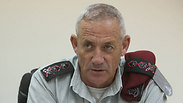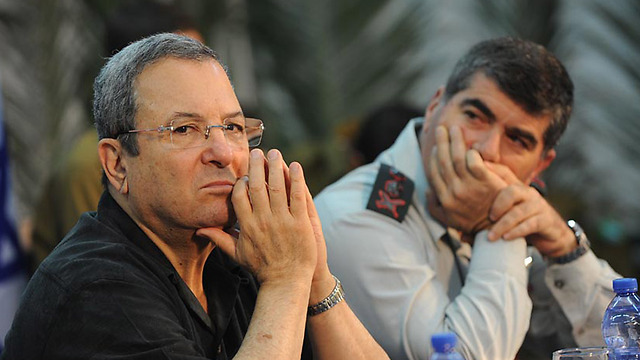
Israel's real top dog
Op-ed: The IDF chief is fully responsible for the lives of all of Israel's citizens – not the prime minister and not the defense minister; he's the one who defines the national mood, in particular the national fortitude on which the state exists.
Members of the press, and long-serving military correspondents in particular, like to believe they affect the appointment of a chief of staff. They assume a chief of staff of their liking would assist them in their work if he knew they pushed for his appointment. He'd owe them. But chiefs of staff over the years have proved otherwise.
The same goes for Knesset members and other political wheeler-dealers who wander the corridors of power. They have something to say, and they usually say it, particularly to the shoo-in candidate for the post – so that when the time comes, he'll remember. But truth be told, in almost all instances, the defense minister has disregarded the kibitzers.

So before the name of the next chief of staff is made public, it's worthwhile noting a number of things:
First: In my humble opinion and modest experience, the chief of staff holds the most important position in the State of Israel – not the prime minister, not the Mossad chief, and not the head of the Shin Bet security service; and not those who strut through the Knesset lounges and pretend their word is the law. The position of chief of staff is the most important in most of Israeli life and the lives of its eight million people revolve around security.
The chief of staff is the No. 1 go-to guy. He can issue an order to do – or not do – anything at all. When the State of Israel needs something "big," civilian too, it will always call in the Israel Defense Forces – from rescuing residents of flooded Hadera to evacuating Gush Katif. A normal chief of staff will of course request approval from the so-called political echelon; deep down, however, he'll thumb his nose at them. What do they know anyway? The First Lebanon War was born in the mind of such a chief of staff.
Second: The chief of staff is fully responsible for the lives, and deaths, too, God forbid, of all of the country's citizens – not the prime minister, and not the defense minister. He's the one who will tell the defense minister to tell the prime minister that he doesn't have sufficient Iron Dome systems to defend a specific region; and the residents of that region will thus be abandoned to their bitter fate. He'll be of the opinion that we need to go to war – and we'll all run to the emergency shelters. He recruits; he fires; he creates the national mood, and particularly the national fortitude on which the State of Israel exists.
Third: He commands the largest budget. Thus, when a chief of staff requests an additional dozen stealth fighters, he also determines where hospitals won't be built, where roads won't be paved, where new schools won't be erected. With a single foolish decision, he can turn a man into a millionaire; and he is also the one who can slash the pension of a poor non-commissioned officer who can barely get by.
Fourth: It's true that we live – still live, some may say – in a democratic country; and while the so-called political echelon may have to consider every recommendation offered by the chief of staff, it certainly doesn’t have to accept them all. It appears, however, that Israel has yet to witness a prime minister or government that has rejected a recommendation and decision made by the chief of staff.
By the way, chiefs of staff over the years have always been careful to show respect to the so-called political echelon. They always only "advise;" but they frequently present potential courses of action in a manner in which the politicians are led to select the precise course of action the army desires.
Fifth, and most importantly perhaps these days: Only the defense minister decides who will be the next chief of staff. He is the one who makes the recommendation. He presents it to the cabinet for approval. He can of course consult with the prime minister, ministers, military generals; but the decision is his and only his. Ehud Barak, for example, got the nod from 17 army generals, but the defense minister at the time decided to name Dan Shomron chief of staff ahead of him.
The prime minister is entitled to reject the defense minister's candidate for chief of staff, but he cannot propose an alternative – unless the defense minister agrees and makes the recommendation to the cabinet. And this is the way it has always been.
In conclusion, it's customary to believe that the defense minister selects the Israel Defense Forces' top officer for the job. That would be best. But when the defense minister is faced with a number of "equal" candidates, he sometimes brings another consideration into play: He selects the man with whom he will be most comfortable working.
And sometimes the defense minister makes a mistake. Ezer Weizman, who picked Rafael Eitan for the job, never imagined he would get the boot from his ministerial post even before the chief of staff. And as for the relationship between Ehud Barak and Gabi Ashkenazi, the appointment of a previous defense minister, there's no need to say another word.











